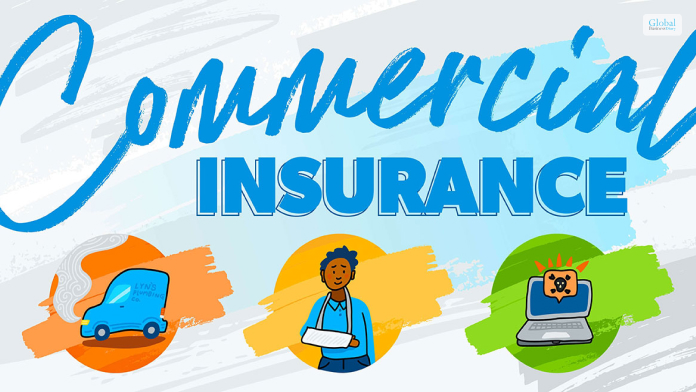Risk & Reward: Navigating The Game Of Small Business Insurance For Lasting Peace Of Mind

In a fluctuating abroad of small enterprises, the quest for achievement usually comes with the help of several risk variables. Small enterprise owners are familiar enough with the challenges they have to deal with, but what about those unexpected events that might undermine their hard work? This is where the game of small enterprise coverage comes into use, providing a tactic to avoid dangers and ensure long-term peace of mind. In this edition, we delve into the remarkable ratio of threat and praise in the arena of small commercial coverage.
Assessing Small Business Risks
Identifying Potential Risks
Step one in designing a solid coverage strategy is knowing the unique risks that your enterprise faces. Capability threats facing small groups range from damage to assets to claims for legal responsibility. For instance, a restaurant might further face slip-and-fall accidents, while a tech startup can be at risk of data breaches.
Analyzing The Impact Of Risks
These risks may have an excessive impact on the financial stability of your commercial enterprise. Take for instance a boutique retail store that is going through a flood, which destroys its stock and disrupts its operations. Without proper coverage coverage, the consequences can be economically catastrophic, perhaps leading to shutdowns.
Types Of Small Business Insurance
General Liability Insurance
General legal responsibility insurance serves as a foundational shield in opposition to diverse risks. It presents coverage for bodily injury and property harm claims, protecting your enterprise from capacity proceedings. Whether a consumer slips on wet ground or there is damage because of your products, trendy legal responsibility coverage is a critical thing of a complete threat management method.
Property Insurance
Property insurance safeguards your physical assets, such as homes, equipment, and stock. Small corporations invest considerably in those properties, and unforeseen occasions like fires, theft, or herbal screw-ups can pose a great hazard. Property insurance guarantees that the financial burden of such events is alleviated, making an allowance for a fast restoration.
Business Interruption Insurance
Business interruption insurance is an insurance policy that helps reduce the financial effect of those disrupting your business activities. Be it some natural tragedy or abrupt cases such as pandemics, this policy compensates income loss for your business and helps you to stay financially afloat during these hard periods.
Customizing Insurance Coverage
Tailoring Policies To Business Needs
Every small commercial enterprise is particular, and so are its dangers. Working with insurance vendors, together with Nation North Insurance, to customize insurance guarantees that your precise desires are addressed. Whether you operate in an excessive-legal responsibility enterprise or face specific dangers, tailoring rules to your business’s wishes is a proactive step closer to complete safety.
Understanding Policy Exclusions
While customizing coverage, it is crucial to apprehend policy exclusions. Examining common exclusions allows discover ability gaps in insurance that may leave your enterprise vulnerable. Nation North Insurance, with its knowledge of small business coverage, can guide you through the intricacies of coverage terms and exclusions.
Cost-Benefit Analysis Of Small Business Insurance
Weighing The Costs Of Insurance Premiums
Investing in insurance comes with an economic cost, but the benefits often outweigh the rates paid. When considering coverage, it is crucial to weigh the fees towards the potential risks. While the upfront costs may additionally seem enormous, the lengthy-term financial savings and safety provided by way of coverage offer a precious return on funding.
Quantifying The Value Of Peace Of Mind
Beyond the economic components, small business insurance contributes to the intangible yet helpful asset of peace of thought. Knowing that your commercial enterprise is included in opposition to unforeseen occasions allows you to recognize growth and success. The experience of safety provided via insurance is a key element in navigating the demanding situations of entrepreneurship.
Risk Management Strategies
Implementing Proactive Risk Mitigation
In addition to insurance, small agencies can implement proactive change mitigation strategies. This consists of employee education, protection protocols, and measures to save you from common dangers. By being proactive, agencies can lessen the chance of incidents that can cause insurance claims.
Establishing Emergency Preparedness
Creating a contingency plan for sudden occasions is a crucial issue of hazard control. Small corporations ought to establish emergency preparedness protocols that define steps to be taken on the occasion of a disaster. Collaboration with insurance vendors can assist in developing powerful emergency plans.
The Role Of Professional Advice
Consulting With Insurance Experts
Navigating the complexities of small business coverage requires expert steering. Consulting with skilled insurance experts, like the ones at Nation North Insurance, guarantees that you make well-informed selections. Their knowledge lets you understand the nuances of policies, pick the proper coverage, and cope with any concerns particular to your enterprise.
Conclusion
In the intricate sport of small commercial enterprise, studying the dynamics of hazard and praise is paramount. Small business coverage, with its tailor-made insurance and protection, serves as a strategic device for ensuring lasting peace of thoughts. By assessing dangers, customizing coverage, and weighing the expenses against the benefits, businesses can navigate the challenges with self-assurance.
For complete small commercial enterprise coverage solutions, bear in mind partnering with Nation North Insurance – your relied-on ally in the pursuit of chance mitigation and long-term fulfillment.
Read More:













